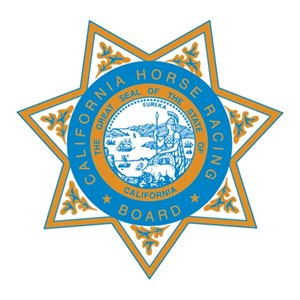CA Owners Pursuing Clearer Agreement on Exclusions


The Thoroughbred Owners of California is pursuing clearer agreements on when and how racing associations can exclude horse owners.
In a discussion on approving race dates at the July 18 California Horse Racing Board meeting, TOC president and CEO Greg Avioli noted his organization did not have agreements for upcoming meets at Los Alamitos Race Course and Santa Anita Park because it was discussing exclusion policies with the tracks.
The TOC noted it didn't want the issue to delay or otherwise threaten racing at the upcoming meets and encouraged the CHRB to approve race dates for the Los Angeles County Fair's meet at Los Alamitos Sept. 4-25 and the Santa Anita fall meet Sept. 25-Nov. 4 under the same agreement on exclusions at the tracks' most recent meets.
The CHRB ultimately did just that, approving the dates while asking that the TOC, California Thoroughbred Trainers, and tracks have agreements in place on exclusions ahead of agreements for the Del Mar fall meeting. With the exclusion issue taken out of the equation, the Los Al dates were approved and the Santa Anita dates were approved contingent on horsemen and the track finalizing an agreement on purse structure by Aug. 2.
Exclusion policies became a hot topic when Santa Anita ruled off trainer Jerry Hollendorfer at this year's winter/spring meet that was plagued by breakdowns. Hollendorfer, an owner and Hall of Fame honoree, had four horses suffer catastrophic breakdowns at the meet that saw 30 horses die in races or in training.
After the meeting, Avioli said it's important for California owners to understand exclusion policies and procedures at each track. He said track officials have brought up their rights to exclude individuals from private property, but Avioli noted there are other laws, regulations, and history to consider, all of which typically are covered in the horsemen's agreement.
"We want clear agreements on this so that every owner knows the rules and the process at each meet," Avioli said.
Members of the CHRB as well as CTT executive director Alan Balch noted such agreements may soon be shaped by a California court. Hollendorfer, who has not been allowed to run at the current Del Mar meet, and the CTT have filed a complaint in San Diego Superior Court contending that Del Mar has not followed proper procedure relative to an agreement CTT has with the track.
Darrell Vienna, who represents the CTT in the case, said it has an agreement on exclusion with Del Mar that first requires the CTT to agree to such a decision or for a grievance hearing to be conducted involving the track, CTT, and the trainer. Balch said at Thursday's meeting that the judge wanted more time to consider the issue and has set a hearing for July 25.
After the meeting, Avioli said his organization has always included the topic of exclusion in its agreements with racing associations, but it needs to be clarified. He said if tracks want to be able to exclude licensed owners without any input from the TOC or a hearing, owners need to know that is the policy. He doubted many owners would want to race at a track with such a policy.
"At the other end of the spectrum, you could have a policy that would never allow tracks to rule off an owner," Avioli said. "That's the other extreme. It would seem that there can be a middle ground on this that works for the tracks and horsemen."
In other news out of Thursday's meeting, the CHRB moved forward on policies that would phase out the use of race-day medication. The board unanimously approved advancing an amendment that would lower the allowable maximum dosage of race-day furosemide that can be administered from 500 mg to 250 mg and would prohibit the administration of race-day Lasix in foals born in 2018 and beyond.
The latter policy would ban Lasix in 2-year-old races beginning in 2020. As that generation advances, race-day Lasix would be phased out of the sport in California. The board's vote Thursday allows for 45 days of public comment on the issue.
